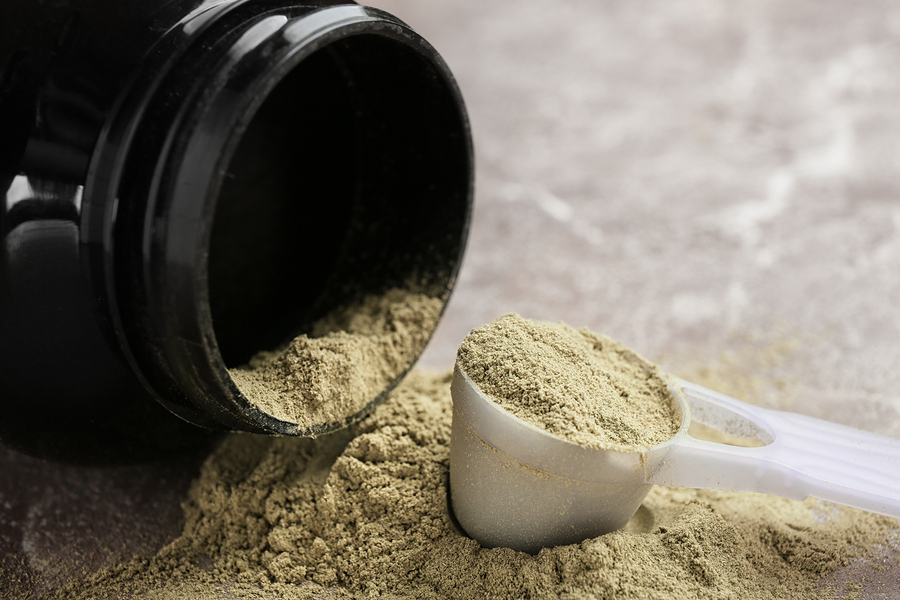If you’ve been going to the gym or been active in the fitness industry for any amount of time, you will have no doubt heard about supplements like protein powder. You might be wondering what the difference is between different types of protein powder and whether or not it’s necessary for you to include this kind of supplement in your fitness plan.
Many people can benefit significantly from supplementing their new diet with extra protein, especially those with highly intense training regimes, bodybuilding goals or who simply don’t get enough natural protein from the food they eat.
Adrian Robinson, a personal trainer, knows all different types of protein powder and about choosing the ideal protein powder to help you meet your fitness goals. He says “A protein supplement is just that – a supplement. You need to identify where and why you have a deficit in protein before you start shopping.”
“Once you know what your actual needs are, it’s easy to evaluate and compare the different choices you have for protein powder supplements,” he said.
A lot of people won’t have any trouble naturally sourcing all the protein they require from their daily diet. With that said, there are plenty of circumstances where investing in a protein powder could be the game-changer you need to fast-track your fitness goals.
Do you need a protein powder?

The first step to choosing a protein supplement is determining what benefit it is going to have for you. If you are someone who regularly participates in highly intense physical activities like sport or bodybuilding, then your body is going to demand you consume more protein than someone with a more sedentary lifestyle.
An average adult woman needs around 0.75 grams of protein per kilo of body weight while an adult man needs roughly 0.84 grams per kilo. However, modifiers in physical activity (such as type and intensity of exercises) can have an impact on this ratio.
Adrian says that “anyone who is putting their body through intense physical activity on a routine basis will probably benefit from a protein powder as they will probably not source all their required protein from their daily food choices,”
Other situations where someone would benefit from a protein powder include if someone chooses to adopt a vegan diet and can no longer source protein from animal products or when someone needs to recover from a serious injury or invasive medical procedure.
Also, someone who is simply very busy and can’t sit down for or cook adequate meals might also replace their meals with protein supplements. Adrian says, “there’s no excuse for skipping a meal when you can easily mix up a protein shake in less than a minute”.
Varieties of protein powder

Just like any other dietary supplement, protein powders come in a nearly limitless array of varieties, each with their own strengths and weaknesses. Some powders are going to be more appropriate for different fitness and dietary goals than others – so it’s important to know the differences between them.
Whey
Whey protein is probably the variety you’ve heard referenced most in conversation as it’s the popular choice for young people who want to increase their size and strength as quickly as possible. Adrian says that Whey “is popular because of how quickly it is absorbed by the body, which is why it’s primarily used as a post-workout supplement to aid in recovery.
Casein
Casein is similar to whey in that it is sourced from dairy, but the way it is absorbed by the body is slightly different. Mark says that “because it releases slowly, this kind of protein is more appropriate as a before bed booster rather than a post-workout recovery meal”.
Soy, Rice, Pea and Hemp
Soy protein is low in fat and obviously a great alternative for vegans and vegetarians as well as those who can’t consume dairy products (lactose intolerant).
Rice protein gives users a boost in B vitamins, carbohydrates and fibre, making it ideal as an overall dietary supplement. Pea protein is the closet plant-based alternative to having a complete amino acid profile and is the best choice for whole food enthusiasts.
Hemp protein (derived from the cannabis plant) also has a wide range of benefits and is sustainability sourced.
How to choose a protein powder

Now that you have a better idea about the uses and varieties of protein powder, you can start the process of evaluating which product is best for you. This is a crowded and highly competitive market where nutritional science is a huge marketing tool.
Adrian says “don’t be suckered in by big brands or buy what you’re buddy is using, do your own research and be wary of misleading claims,”
“The quality of your supplement is going to be more important than how much of it you consume, so don’t sacrifice your ideal choice for the sake of a cheaper option that seems like it’s better value,”

